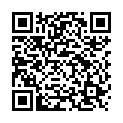|
|
|
| Module code: BAPP21.S.31 |
|
3S (3 hours per week) |
|
3 |
| Semester: according to optional course list |
| Mandatory course: no |
Language of instruction:
German |
Assessment:
Course work
[updated 15.11.2021]
|
MBG21.S.34 Management and Professional Pedagogy in Health Care, Bachelor, ASPO 01.10.2021
, optional course, general subject, course inactive since 30.09.2021
BAPP21.S.31 ..., Bachelor, ASPO 01.10.2021
, optional course, general subject
|
45 class hours (= 33.75 clock hours) over a 15-week period.
The total student study time is 90 hours (equivalent to 3 ECTS credits).
There are therefore 56.25 hours available for class preparation and follow-up work and exam preparation.
|
Recommended prerequisites (modules):
BAPP21.1
BAPP21.11
BAPP21.2
[updated 14.04.2022]
|
Recommended as prerequisite for:
|
Module coordinator:
Studienleitung |
Lecturer: Studienleitung
[updated 20.07.2021]
|
Learning outcomes:
After successfully completing this module, students will have the following skills and competencies:
.
Knowledge and Comprehension:
Students will orient themselves to the “Charter of Rights for People in Need of Long Term Care and Assistance”.
They will be able to structure nursing care counseling according to the guideline of the GKV-Spitzenverband for the uniform implementation of nursing counseling according to § 7a SGB XI from May 7, 2018.
They will be able to incorporate the health and nursing science reference frameworks from the care guidelines of the Association of the Scientific Medical Societies in Germany (AWMF) and the expert standards of the German Network for Quality Development in Nursing (DNQP) in their work.
They will be able to incorporate the guidelines and principles of the GKV-Spitzenverband (National Association of Statutory Health Insurance Funds) and the MDK/MDS.
They will be familiar with the concepts of needs assessment, resource analysis, and supply management.
They will be able to design resource- and solution-oriented counseling sessions, taking into account the individual (support) needs and requirements of those seeking advice;
They will be familiar with cultural and gender-sensitive counseling concepts.
They will be familiar with integrative concepts for working with caregiver/caregiver stress.
They will be familiar with quality assurance instruments.
The use, application, and generation of knowledge:
Students will be able to apply the guideline of the GKV-Spitzenverband for the uniform implementation of nursing care counseling according to § 7a SGB XI from May 7, 2018 (nursing care counseling guidelines).
They will be able to establish a trustworthy conversational and counseling framework in a cooperative, respectfull, and empathic manner.
They will be able to recognize factors that promote and inhibit conversation, achieve a balance between intimacy and distance in counseling situations, and perceive and recognize conflicts.
They will know how to inquire about the needs and wants of those seeking advice and respond to them sensitively.
Communication and Cooperation:
Students will be able to participate actively in interdisciplinary and regionally networked collaborations.
Scientific Self-Concept/Professionalism:
Students will be able to reflect on the pressures upon themselves from and the limitations to their caregiving counseling work and seek support when needed.
They will be able to reflect on and analyze ethical issues and conflict situations in counseling sessions.
[updated 15.11.2021]
|
Module content:
Legal framework for long-term nursing counseling:
Guidelines of the GKV-Spitzenverband for the uniform implementation of nursing care counseling according to § 7a SGB XI (nursing counseling guidelines).
Recommendations of the GKV-Spitzenverband pursuant to Section 7a (3) Sentence 3 of the German Social Security Code (SGB XI) on the required number, qualifications and further training of nursing care counselors from August 29, 2008 (most recent version).
Pflegeweiterentwicklungs- und Pflegestärkungsgesetz (Long-Term Care Development and Care Support Acts)
Charta der Rechte hilfe- und pflegebedürftiger Menschen (Charter of Rights for People in Need of Long Term Care and Assistance)
Guidelines / principles of the MDK appraisal
Definition of someone in need of nursing care according to § 14 SGB XI
SGB (German Social Code) benefits, in particular SGB V and the benefits of social long-term care insurance (SGB XI)
List of medical aids from the GKV-Spitzenverband
Areas of application for nursing care counseling
Provide nursing counseling in a variety of patient care settings (pediatrics, acute and long-term care, and home, outpatient, and partial hospitalization nursing/care);
Nursing counseling in an interdisciplinary team, integrated into regional patient care structures
Reference framework
Concepts of needs assessment, resource analysis, and supply management
Understanding of counseling according to the guidelines of the GKV-Spitzenverband for the uniform implementation of nursing care counseling according to § 7a SGB XI (nursing counseling guidelines).
Advisory assistance according to § 37 para. 3 SGB XI
Concepts for integrative work with relatives and other people/special stresses on caregivers/relatives
Culture-sensitive nursing counseling
Dealing with the special burdens of nursing counselors/limits of nursing counseling
Quality assurance instruments
[updated 15.11.2021]
|
Teaching methods/Media:
Blended learning
[updated 15.11.2021]
|
Recommended or required reading:
Recommended literature will be announced at the beginning of the course.
[updated 15.11.2021]
|

